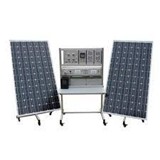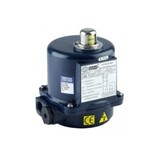Ai Group's members operate businesses of all sizes throughout Australia and represent a broad and expanding range of sectors.
Ai Group welcomed the opportunity to comment on the COAG Working Group on Climate Change and Water’s Design Options for the Expanded National Renewable Energy Target Scheme.
Ai Group is a member of the Australian Industry Greenhouse Network (AIGN) and supports the AIGN Submission on the RET. Its comments largely reinforce the AIGN submission. In addition, it makes specific comments on particular items.
General Comments
Ai Group regards the RET as an ill-advised and risky policy proposal that is likely to significantly increase the cost of greenhouse gas abatement in Australia. The arguments for this position are well known and are thoroughly canvassed in the Productivity Commission’s Submission to the Garnaut Climate Change Review of May 2008, What Role for Policies to Supplement an Emissions Trading Scheme?
We are concerned that the RET proposal is proceeding in the face of these arguments and without adequate assessment by the Government of its costs and benefits.
Ai Group maintains that the Carbon Pollution Reduction Scheme (CPRS) should be designed to meet Australia’s emission reduction target. A CPRS that does this will generate incentives that will favour low-emissions energy at the expense of other energy sources. The broad coverage proposed for the CPRS will ensure that a very wide range of abatement opportunities beyond the energy sector will also be brought into consideration. We are strongly of the view that the RET is very likely to result in abatement that is at higher cost than would otherwise be necessary to meet our emissions reduction targets. The adverse impacts of these distortions will flow broadly to households and businesses throughout the economy.
In principle we can see virtue in the idea of achieving a unified national approach to renewable energy targets rather than having a variety of proposals across jurisdictions. In the context of Australia’s overall direction on climate change policy, however, it would appear that a better national approach for the Commonwealth to take would ensure that existing renewable energy initiatives were wound back rather than extended.
Specific Comments
Measures to Address Emissions Intensive Trade Exposed Industries
While we recognise that this issue is reserved for a subsequent consultation process, Ai Group wants to register that we are particularly concerned about the dilemma raised by the issue of compensation for emissions intensive trade exposed (EITE) industries.
We are acutely conscious of a highly unsatisfactory policy trade off between two groups. We recognise there is a case to offset the impacts on particular industries who are subject to international competition and who, in the absence of offsetting measures, would be most adversely affected by the RET. At the same time however, there is a clear risk that all other energy users stand to bear the burden not only of the primary RET policy but also of a magnification of its impact due to measures designed to offset the impacts on EITE businesses.
In particular, for a given RET target, under whatever definition is adopted for EITE businesses, there is likely to be a group of trade-exposed businesses that do not qualify for EITE measures and who are at risk of being worse off than if the EITE measures were not put in place. In addition, all businesses who are not trade exposed and all households also face the risk of being worse off not only because of the burden of the RET itself but also because of the existence of the EITE measures.
Ai Group recognises the need to address the particular competitive difficulties faced by the most emissions intensive of Australia’s trade exposed industries. Any such compensating measures should be designed in such as way as to ensure that no additional adverse burden is imposed on other energy users.
Approach 1 or 2?
Ai Group favours an approach to reducing greenhouse gas emissions that achieves least cost abatement. As indicated above, we anticipate the RET proposal is likely to impose higher-than-necessary costs. Clearly however, if the Government continues to support a RET, Ai Group would favour an approach that imposed less costs on energy users. However, in the absence of a meaningful assessment of costs and benefits of alternative approaches we cannot make a reasonable assessment of preferred options.
Our intuition is that the least cost option would be Approach 1. This would involve:
- Allowing projects to create Renewable Energy Certificates (RECs) for the life of the scheme;
- Including solar water heaters for energy displacement;
- Gradually increasing the target in the early years to generate a large number of RECs at relatively low prices; and
- Unlimited banking of RECs.
- Further Consultation
Ai Group appreciates the consultation undertaken to date. We also note that a consultant has been engaged to conduct economic and electricity market modelling and analysis. The purpose of this is to inform objective evaluation of design options.
We recommend in the strongest possible terms that this modelling should be released and that there should be further opportunities to consult after its release.
- Suppliers
- New to IndustrySearch? Book a Demo
- Advertise with us
- Login
- Email Marketing
- Buyers
- Get Quotes
- Articles & Ideas
- Login
- Subscribe to newsletter
- My Details
- Get Quotes
- Automation & Control
- Automotive Workshop Equipment
- Commercial Cleaning Equipment & Supplies
- Construction Equipment & Heavy Machinery
- Conveyor Systems & Components
- Electrical & Power Generation Equipment
- Electronic Components
- Farming & Agriculture
- Food & Beverage Processing
- Forklifts & Forklift Attachments
- Hydraulic & Pneumatic Equipment
- Industrial Materials, Tools & Components
- Industrial Pumps
- IT Hardware & Industrial Computing
- IT Software & Applications
- Laboratory Equipment & Instruments
- Manufacturing & Industrial Equipment
- Material Handling & Lifting Equipment
- Metalworking & Machining
- Mining Equipment & Machinery
- Packaging & Labelling Machinery
- Pallet Handling Equipment
- Personal Protective Equipment
- Security & Surveillance
- Test & Measurement
- Transport & Logistic Equipment
- Warehouse Storage, Shelving & Racking
- Waste Treatment & Environmental Management
- Welding Machines & Accessories
- Woodworking & Joinery Machines
- Workplace Equipment
- Workplace Safety Equipment
- Get Quotes
- Automation & Control
- Automotive Workshop Equipment
- Commercial Cleaning Equipment & Supplies
- Construction Equipment & Heavy Machinery
- Conveyor Systems & Components
- Electrical & Power Generation Equipment
- Electronic Components
- Farming & Agriculture
- Food & Beverage Processing
- Forklifts & Forklift Attachments
- Hydraulic & Pneumatic Equipment
- Industrial Materials, Tools & Components
- Industrial Pumps
- IT Hardware & Industrial Computing
- IT Software & Applications
- Laboratory Equipment & Instruments
- Manufacturing & Industrial Equipment
- Material Handling & Lifting Equipment
- Metalworking & Machining
- Mining Equipment & Machinery
- Packaging & Labelling Machinery
- Pallet Handling Equipment
- Personal Protective Equipment
- Security & Surveillance
- Test & Measurement
- Transport & Logistic Equipment
- Warehouse Storage, Shelving & Racking
- Waste Treatment & Environmental Management
- Welding Machines & Accessories
- Woodworking & Joinery Machines
- Workplace Equipment
- Workplace Safety Equipment
Trusted by 1,000,000+ Australian industrial buyers
Buyers
- Discover products & solutions
- Login
- Subscribe To Newsletter
- Browse All Products
- Read Articles
Suppliers
Advertise
- Promote your products & solutions
- New to IndustrySearch? Book a Demo
- Login / Forgot Password
- Advertise Your Products
- Success Stories
- Email Marketing
- Suppliers
- Advertise with us
- Login
- Email Marketing
- Buyers
- Get Quotes
- Articles & Ideas
- Login
- Subscribe to newsletter
- My Details
Get Quotes
- Automation & Control
- Automotive Workshop Equipment
- Commercial Cleaning Equipment & Supplies
- Construction Equipment & Heavy Machinery
- Conveyor Systems & Components
- Electrical & Power Generation Equipment
- Electronic Components
- Farming & Agriculture
- Food & Beverage Processing
- Forklifts & Forklift Attachments
- Hydraulic & Pneumatic Equipment
- Industrial Materials, Tools & Components
- Industrial Pumps
- IT Hardware & Industrial Computing
- IT Software & Applications
- Laboratory Equipment & Instruments
- Manufacturing & Industrial Equipment
- Material Handling & Lifting Equipment
- Metalworking & Machining
- Mining Equipment & Machinery
- Packaging & Labelling Machinery
- Pallet Handling Equipment
- Personal Protective Equipment
- Security & Surveillance
- Test & Measurement
- Transport & Logistic Equipment
- Warehouse Storage, Shelving & Racking
- Waste Treatment & Environmental Management
- Welding Machines & Accessories
- Woodworking & Joinery Machines
- Workplace Equipment
- Workplace Safety Equipment
Get Quotes
- Automation & Control
- Automotive Workshop Equipment
- Commercial Cleaning Equipment & Supplies
- Construction Equipment & Heavy Machinery
- Conveyor Systems & Components
- Electrical & Power Generation Equipment
- Electronic Components
- Farming & Agriculture
- Food & Beverage Processing
- Forklifts & Forklift Attachments
- Hydraulic & Pneumatic Equipment
- Industrial Materials, Tools & Components
- Industrial Pumps
- IT Hardware & Industrial Computing
- IT Software & Applications
- Laboratory Equipment & Instruments
- Manufacturing & Industrial Equipment
- Material Handling & Lifting Equipment
- Metalworking & Machining
- Mining Equipment & Machinery
- Packaging & Labelling Machinery
- Pallet Handling Equipment
- Personal Protective Equipment
- Security & Surveillance
- Test & Measurement
- Transport & Logistic Equipment
- Warehouse Storage, Shelving & Racking
- Waste Treatment & Environmental Management
- Welding Machines & Accessories
- Woodworking & Joinery Machines
- Workplace Equipment
- Workplace Safety Equipment
Trusted by 1,000,000+ Australian industrial buyers






